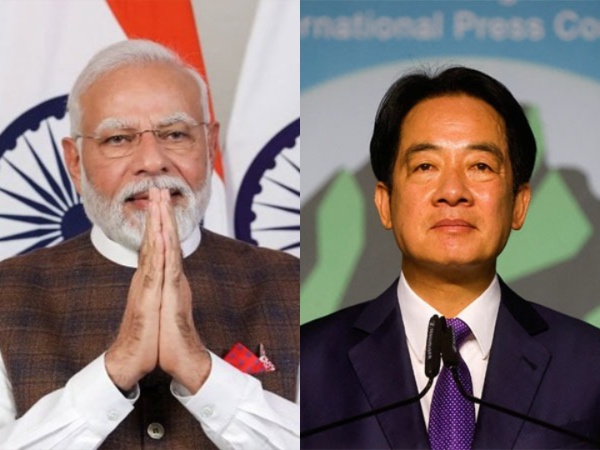Taiwan's Resolve: Military Strength Key to Peace with China, Says President Lai
Taiwan President Lai Ching-te emphasized that military strength is essential for maintaining peace with China. Lai asserted that Taiwan will not succumb to coercion, and highlighted the importance of the recent U.S. arms package. Despite seeking dialogue, Lai insisted that only Taiwan's people can determine their future.

Only military strength can keep the peace with China and the Taiwanese people will not give in to Chinese coercion, Taiwan President Lai Ching-te said on Wednesday as the United States agreed on a speeded-up arms package.
China, whose government views Taiwan as its own territory, held two days of war games around the island shortly after Lai took office last month, saying it was "punishment" for his inauguration speech, which Beijing denounced as being full of separatist context. Speaking at a news conference to mark one month since assuming the presidency, Lai said Taiwan's people "love peace".
"But peace must rely on strength, which is to say avoiding war by preparing for war to achieve peace. Empty promises are not true peace," he said. China's national policy is to annex Taiwan, Lai added.
"Apart from using force, in recent years they have even been using non-traditional coercive measures to force Taiwan to succumb but Taiwan will not give in," he said. Taiwan says such coercive means include preventing Taiwan's participation in international bodies and events, banning or heavily taxing certain exports to China, and "grey zone" tactics such as flying balloons over the island.
Shortly before Lai spoke to reporters at the presidential office in Taipei, the Pentagon's Defense Security Cooperation Agency said U.S. State Department had approved the sale to Taiwan of drones and missiles for an estimated $360 million. The United States is bound by law to provide Taiwan with the means to defend itself despite the lack of formal diplomatic ties, to the constant anger of Beijing.
Taiwan's defence ministry expressed its thanks, especially for U.S. efforts to increase arms sales to the island. Taiwan has repeatedly complained of delayed deliveries. "The Taiwan-U.S. special management team continues to work hard to improve the efficiency of arms sales operations between the two sides. This time, the administrative review time has been significantly shortened," the ministry said in a statement, without elaborating.
Although the United States is Taiwan's main international arms provider, Lai and his predecessor Tsai Ing-wen have made boosting domestic capabilities a priority. "Going forward we will continue to strengthen Taiwan's defence capabilities, not only on arms purchases but also on defence self-sufficiency," he said.
Lai has repeatedly offered talks with China but been rebuffed. He says only Taiwan's people can decide their future, and that the two sides of the Taiwan Strait are "not subordinate to each other", which he told reporters was the consensus of society in Taiwan.
(This story has not been edited by Devdiscourse staff and is auto-generated from a syndicated feed.)
ALSO READ
Harnessing AI for Advanced Cyber Attacks: The Role of ReaperAI in Modern Cyber Defense
NATO Members Boost Defense Spending Amidst Russian Threat
NATO Nations Boost Defense Spending Amid Rising Threats
France and Belgium Bolster Defense Ties with John Cockerill Deal
NATO Spending Surge: Over 20 Members Allocate 2% of GDP to Defense










